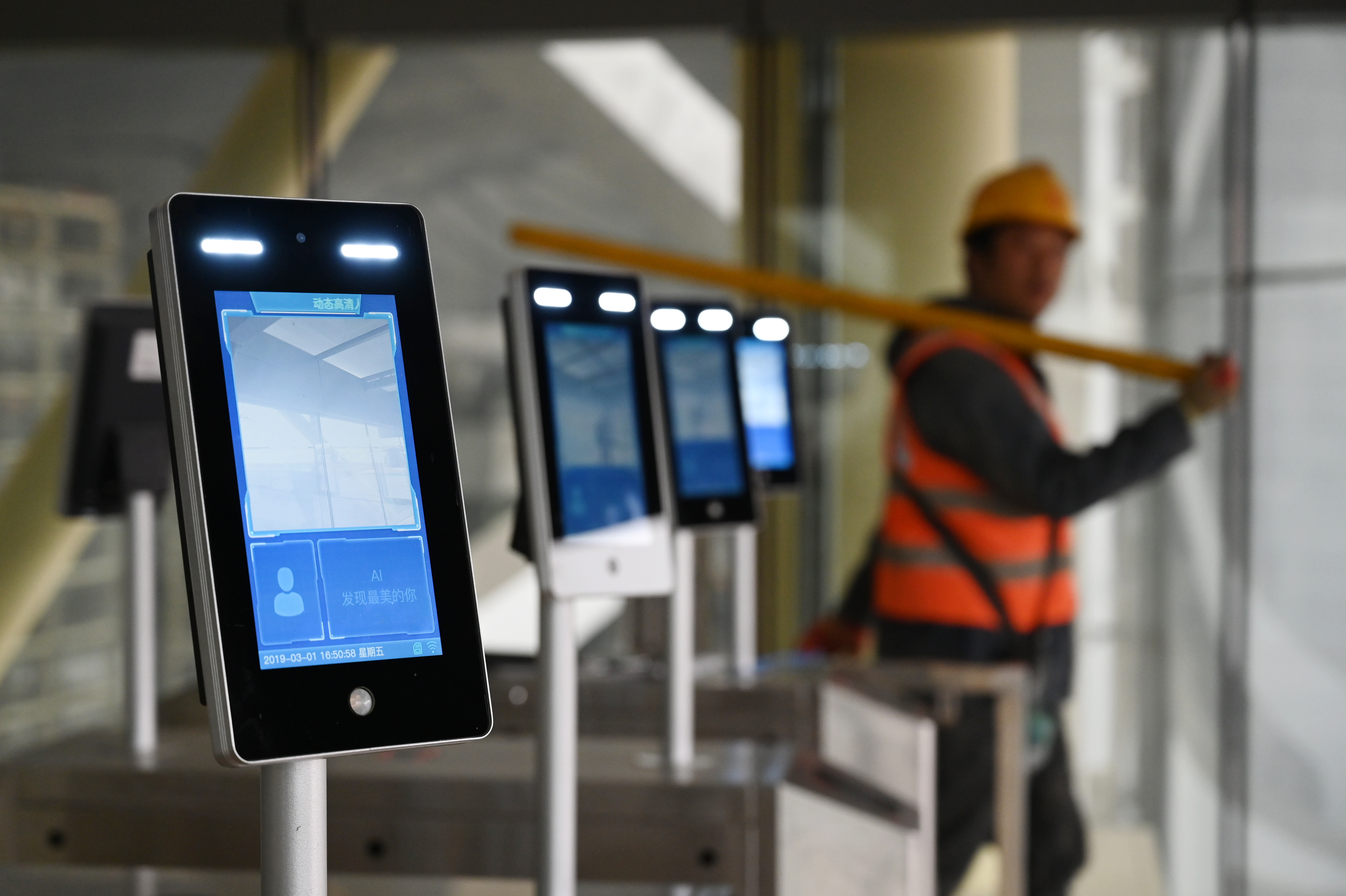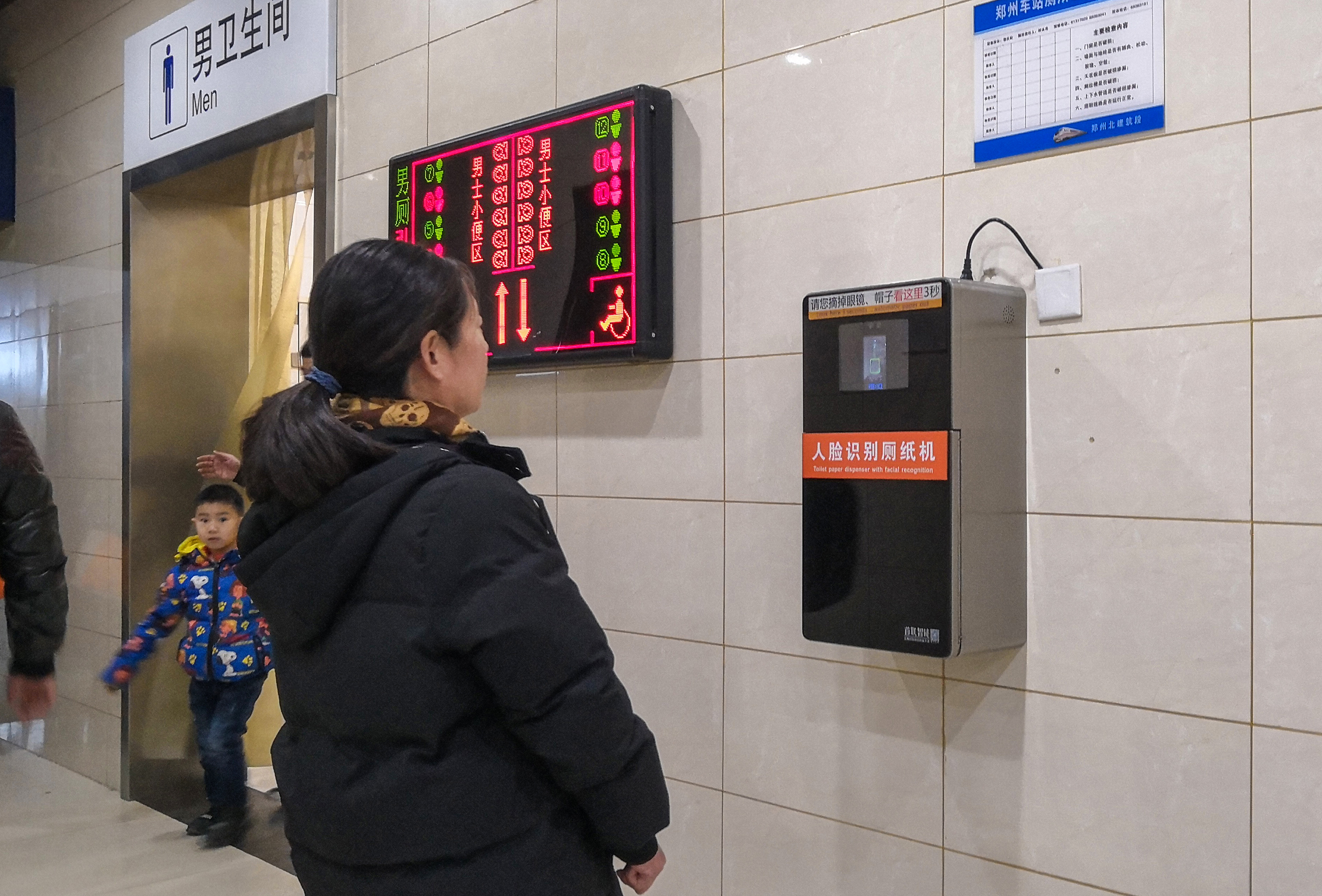Facial Recognition Is Running Amok in China. The People Are Pushing Back.
December 10, 2020In October 2019, Guo Bing’s phone buzzed with an unexpected text from Hangzhou Safari Park.
It was about a technology upgrade at the zoo that would make his life easier as a frequent visitor. Annual-pass holders like him, the message said, would no longer need to verify their identity with their fingerprints to enter the wildlife park. They just needed to bring their face.
The convenience is made possible by facial recognition software and cameras. But Guo, a law professor concerned about privacy, immediately wanted his money back.
When the park refused to do so, he sensed an opening. Seeking to make a case about the danger of facial recognition technology, Guo soon filed what would be the first-ever lawsuit in China against the explosive adoption of technology across the country to identify people by matching their faces against an image database.
In a landmark ruling a year later, on Nov. 20, a court in the eastern city of Hangzhou ruled that it was illegal for the zoo to collect visitors’ facial biometric data without their consent. The decision was widely cheered on social media as overdue justice. “The convenience of advanced technology comes with the cost of privacy,” a top comment on Twitter-like Weibo said. “We can say ‘no.’”
Guo got a modest compensation of $160, but the high-profile case upended the notion that the country’s 1.4 billion population doesn’t care about privacy. And although any challenge to state surveillance is unlikely to succeed, experts said the decision could help rein in what has been a Wild West of mass data collection for commercial purposes.
“Hopefully, the outcome of our case will be a wake-up call to tech companies,” Ma Ce, a partner at Kin Ding Law representing Guo, told VICE World News. “The general public, after seeing the verdict, will be able to stand up to the mandatory collection of biometric data and say, ‘It’s unreasonable and illegal.’”

The case comes at a time when physical and online spaces from residential compounds to payments apps have raced to make use of facial recognition technology, sometimes with dubious justifications.
But rampant abuse and frequent leaks of data have undermined people’s confidence in the technology. A 2019 survey of 6,154 people suggested that more than 70% of the respondents were worried about personal data leaks due to the use of facial recognition technology in public spaces.
This rising skepticism has prompted the Chinese authorities to regulate surveillance technologies.
“It probably surprises people more that [the Chinese government] is doing any balancing at all,” Jeremy Daum, a senior fellow at Yale Law School's Paul Tsai China Center, told VICE World News. “But every government is made of people who are citizens and have families and people understand these issues. Plus, there’s always the question of legitimacy – you want to be a government that the people believe is serving them as much as possible at least, even China.”
“[China’s] legal system is responsive to public opinion,” he said. “And if the public becomes very concerned about these issues, which I think there is a large group of people who are concerned, then, yes, the law will make sure to try to make that balance more explicit.”
A breach of trust
As part of these efforts, China is drafting a Personal Information Protection Law and a Data Security Law, limiting facial recognition cameras to be used only for public security purposes.
And China’s first Civil Code, which includes an article protecting personal data, will go into effect next month.
Daum said that China is elevating existing regulations of the collection of sensitive personal data to the level of national laws, although he didn’t think it went far enough.
Without laws regulating the collection of biometric information, Ma, the lawyer, said that consumers have no choice but to seek redress for data abuse through contract breach or infringement of individual rights.
That was why his client, the law professor Guo Bing, sued the zoo not for the unauthorized use of his biometric data but for breaching the contract.
Guo and his wife had provided their photos when they signed up for the annual pass. Guo argued that the zoo breached the contract when it, without seeking their consent, used their images as it replaced fingerprint scanners at the entrance with the new facial recognition system.
The Hangzhou Fuyang District People’s Court ordered the zoo to delete the photos Guo and his wife submitted. But the court rejected a few other claims Guo had filed, including a demand that the park delete all their biometric information – facial and fingerprint data – under the witness of a third-party organization. Guo appealed to the court on Nov. 30.
Pushing back
Guo, who teachers law at Zhejiang Sci-Tech University, is not alone in fighting the unchecked use of surveillance technology.
Lao Dongyan, a Tsinghua University law professor, has been another prominent voice in raising public awareness of potential data breaches.
Earlier this year, she sent a letter to her property manager protesting the installation of a system that would grant access by scanning residents’ faces.
“The massive rollout of facial recognition technology is partly exploitation of the psychology of the silent majority,” Lao told The Paper in an interview. “If you don't fight it and try, how do you know that there's no hope for change?”
The management of her residence eventually agreed to allow homeowners to choose among access cards, cell phones, and facial recognition to gain access.
Hangzhou, the eastern Chinese city headquarters to many tech companies, including Alibaba, is considering a ban on property management companies from requiring residents to provide biometric data over potential data leaks and the possible infringement of personal privacy.
Guo, the professor suing the city’s zoo, was instrumental in promoting this draft law, Ma said. If passed, the Hangzhou law would be China's first regulating the use of facial recognition in residential compounds.
The popular pushback against facial recognition is evident in the lukewarm response to the Alibaba-affiliated Ant Group’s introduction of devices that allow customers to smile at a camera to make payments, without fishing out their phones.
The system debuted in a Hangzhou KFC in 2017 to let eaters make orders without using cash or their phones. It has since been made available for retailers as an iPad-sized device called Dragonfly, but analysts told the Wall Street Journal that it had failed to gain traction among consumers, citing a cumbersome sign-up process and concerns about misuse of their data.
And a recent plan by the southern city of Dongguan to use facial recognition technology in public bathrooms to fight toilet paper thieves has been suspended following a social media outcry over privacy concerns.

The Big Brother is (still) watching
But the emerging laws are unlikely to protect Chinese citizens from the most watchful of all entities in China – the Chinese government, Yale’s Daum said, as the ruling Communist Party sees mass surveillance as critical to maintaining stability.
“Ultimately, when push comes to shove, public safety and public security would take precedence over personal privacy,” he said.
The Chinese government use of surveillance to assert control over a population is perhaps most egregious in the far-western region of Xinjiang, where Chinese authorities have built an invasive surveillance network to monitor Uighurs and other largely Muslim minorities ostensibly to prevent terrorism.
Xiao Qiang, a researcher focused on technology and human rights at the University of California, Berkeley School of Information, said while there’s a nod to privacy concerns and the private sector may be compelled to be more restricted in using facial recognition technology in the future, it will not change Chinese law enforcement authorities’ access to individual data.
“The Chinese government is all about control. And data collection, including facial recognition technology, is the best control technology,” he said.
